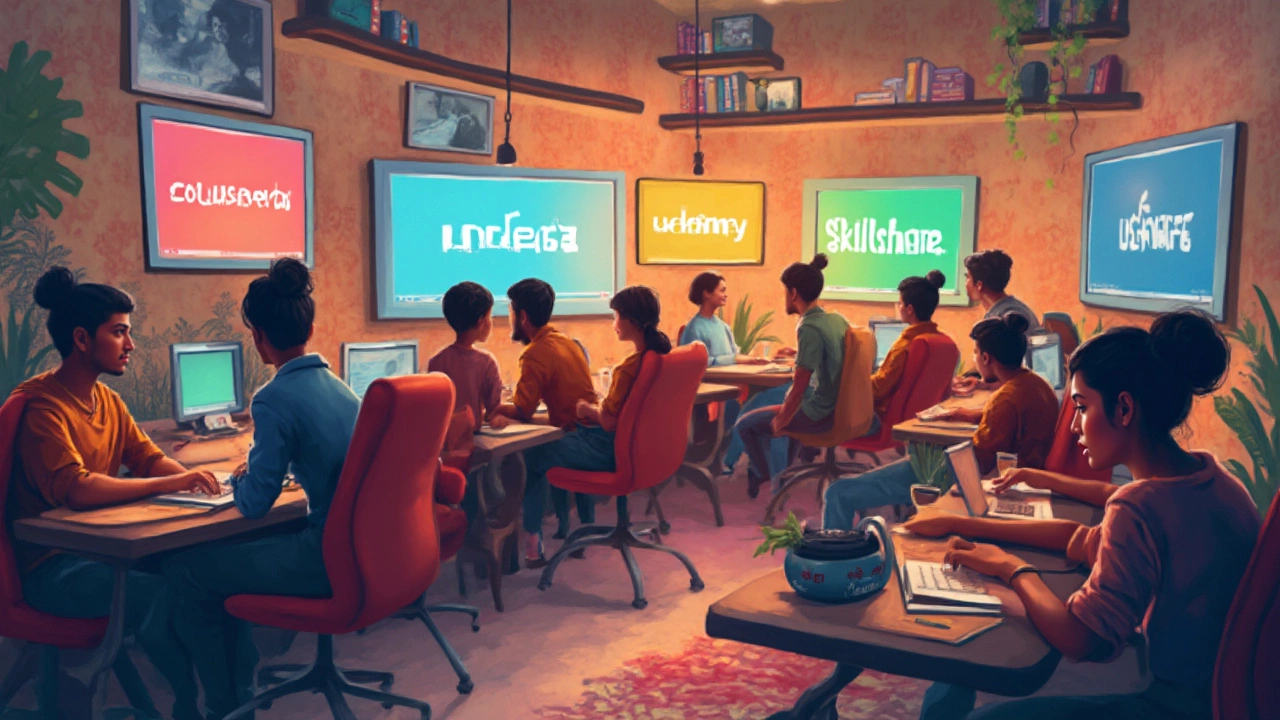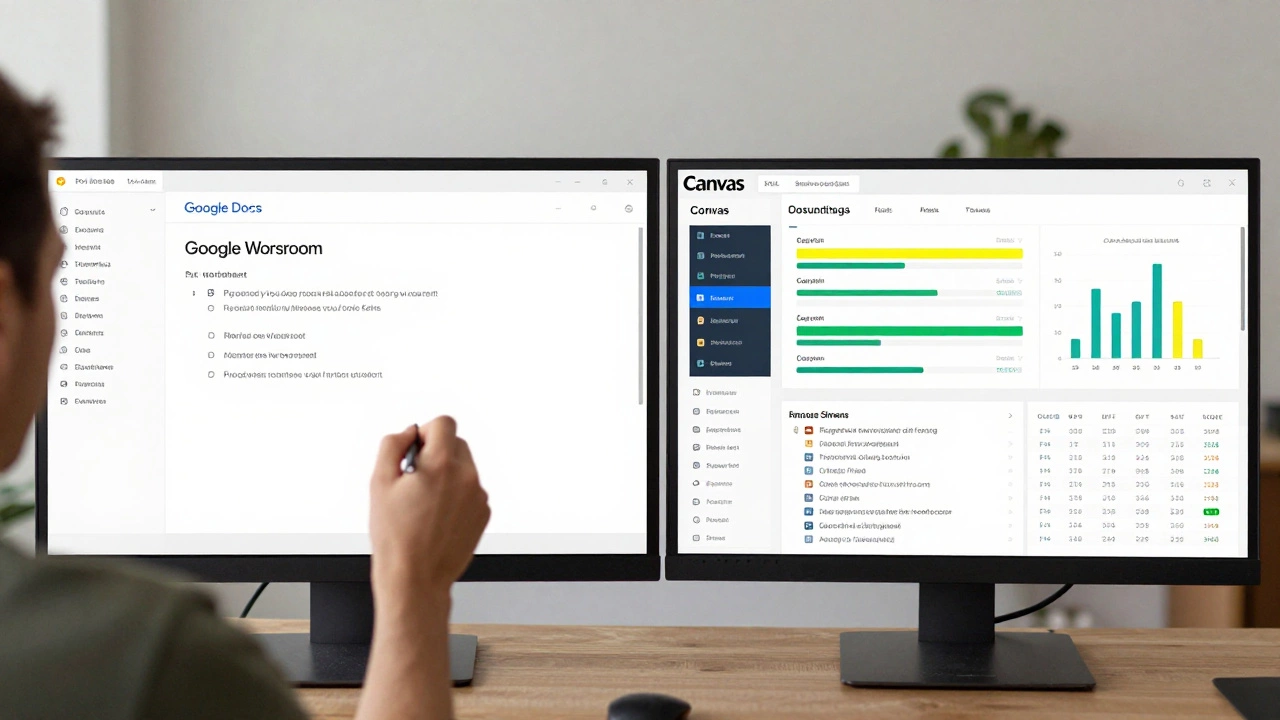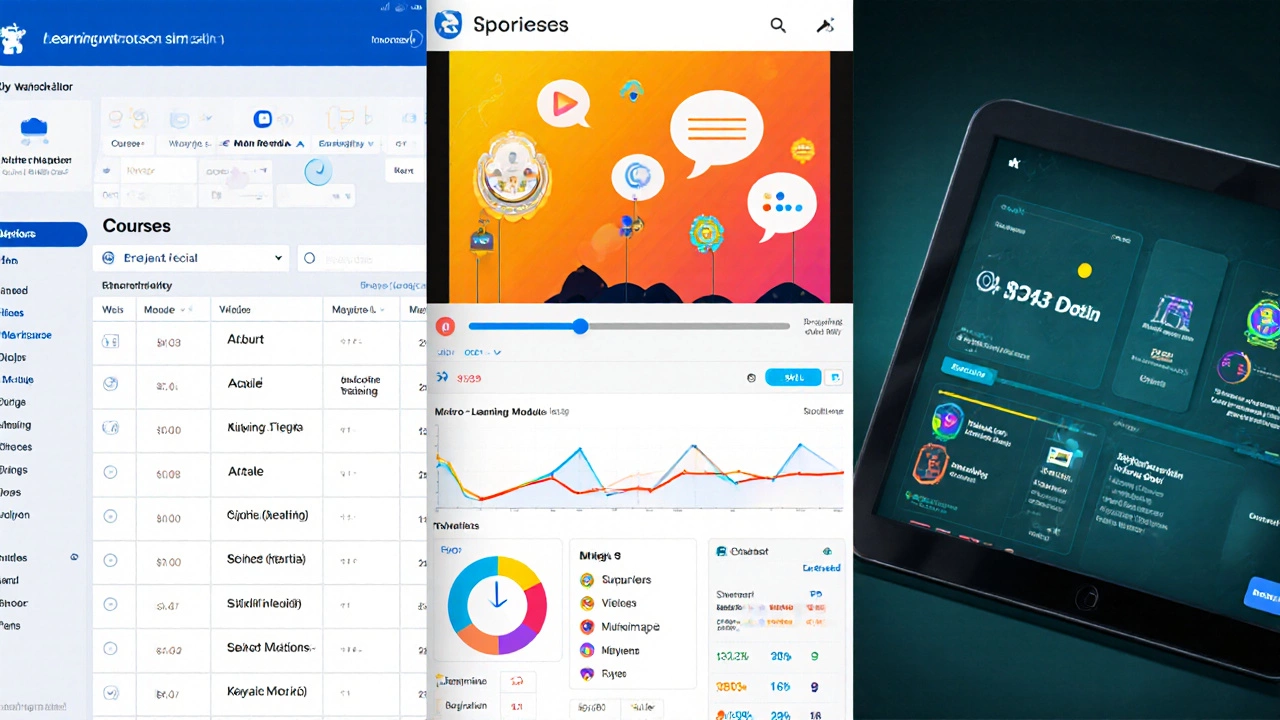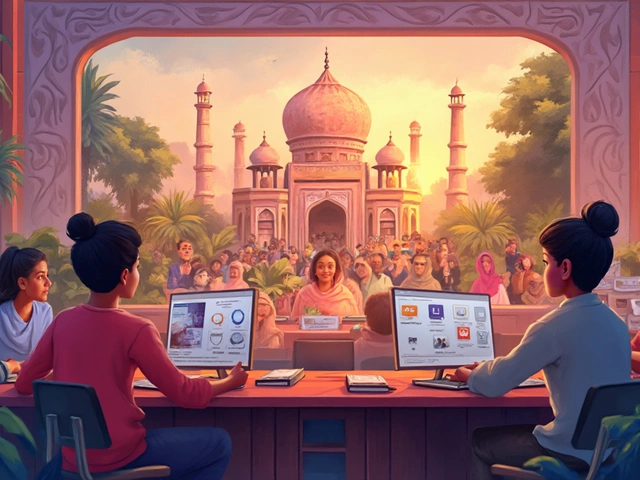Online learning has exploded in popularity, and there's no shortage of platforms to choose from. But if you're wondering which one everyone seems to be using these days, well, you're in the right spot. It's like trying to pick the best pizza place in town—everyone's got an opinion, and it can get heated.
Platforms like Coursera, Udemy, and Khan Academy have made names for themselves in the e-learning world. Coursera, for instance, partners with universities to offer courses while Udemy is more about individual instructors sharing their expertise. Curious about technical skills? Platforms like Codecademy jump into coding with both feet, offering interactive lessons to put theory into practice.
Why are these platforms so popular? It boils down to user experience and the sheer range of courses they offer. Imagine wanting to learn web design one week and History the next—that's the sort of flexibility these platforms provide. Plus, some offer certificates that add credibility to your LinkedIn profile.
- Why Online Learning is Booming
- The Contenders: Top E-Learning Platforms
- Features That Make a Platform Stand Out
- User Experience: Key to a Platform's Success
- Popular Platforms Across Different Niches
- Tips for Choosing the Right Platform
Why Online Learning is Booming
The world has been going digital for years, but the jolt given by the pandemic turned online learning from a handy option into a necessity. The need for socially distanced education lit a fire under the e-learning industry, pulling forward changes that might have taken a decade in the before times.
What's driving this boom? First up is accessibility. Platforms like Udemy and Coursera bring classes to anyone with an internet connection, no matter where you live. They've made learning possible for folks who might've been priced out by traditional schools or live too far from a campus.
A huge perk of these e-learning platforms is flexibility. People aren't just nine-to-fivers anymore. Whether you're a night owl or an early bird, you can pace your own learning. This means less stress and better retention because who learns well with one eye on the clock?
Demand for new skills, especially in tech and innovation, is skyrocketing. As more employers look for tech-savvy employees fit for the digital world, courses on coding to digital marketing have become must-haves. Consider Codecademy, which offers engaging lessons you can fiddle with at your own pace.
Let's talk numbers. A report found that the e-learning market is expected to hit around $375 billion by 2026. That's a lot of folks hitting the books, or rather, their keyboards, showing how online learning is here to stay.
The Contenders: Top E-Learning Platforms
Diving into the digital classroom scene, there are a few e-learning platforms that really stand out from the crowd. These platforms offer something for everyone, from career-changing courses to picking up a hobby.
Coursera is a giant here, boasting partnerships with big-name universities like Stanford and Duke. This platform is perfect for those seeking academic validation and an enriched learning experience. As of 2024, Coursera had over 100 million registered learners, making it one of the largest on the list.
Next up is Udemy, the people’s platform. It's got courses on just about everything, from yoga to AI. Udemy’s secret sauce? Empowering instructors worldwide to create courses and share their knowledge. There's a staggering choice of over 200,000 courses available. A Udemy user once said, "It's like having a library in your back pocket."
"Udemy's platform provides a distribution channel for instructors who want to teach their passions and knowledge to a global audience." - TechCrunch
Need to sharpen your technical skills? Codecademy might be your go-to. It’s a hands-on favorite for those eager to dive into coding, offering interactive coding lessons that appeal to both newbies and seasoned pros.
Khan Academy takes a different approach, thriving on its nonprofit nature and its mission to provide a free education for anyone, anywhere. It's a godsend for kids and a favorite among educators who love its accessible content.
For those interested in more specific niches, platforms like Skillshare focus on creativity and design, while edX offers university-level courses ranging from computer science to law.
- Coursera: Over 100 million learners, university courses.
- Udemy: 200,000+ courses, wide range of topics.
- Codecademy: Interactive coding lessons.
- Khan Academy: Free education, popular with teachers and kids.
- Skillshare: Creativity and design.
- edX: University-level courses in specialized fields.
These platforms not only offer variety but also flexibility, catering to whatever your schedule—even nights or weekends. Picking the right one depends on what you're looking to learn, and how you want to learn it. The world of online education has options galore, so it's all about finding what works for you.
Features That Make a Platform Stand Out
When it comes to choosing an e-learning platform, it's not just about the number of courses or the fancy marketing. It's the little things under the hood that really count. Some features are like having a secret sauce that turns a regular burger into a gourmet meal.
First up, user interface and experience play massive roles. If a platform is clunky or confusing, it's going to scare off users faster than bad customer service at a restaurant. Learning should be seamless and intuitive, where logging in and navigating to your course feels as easy as browsing your favorite social media app.
Next are the resources available. A robust learning platform will provide things like video lectures, quizzes, discussion forums, and maybe even one-on-one mentoring. These tools not only enhance the learning experience but also help students stay engaged and motivated, making sure they're not just passive listeners.
Then there’s accessibility. A solid platform is usable across different devices, whether you're on a laptop in your home office or sneaking in a quick study session on your phone while waiting for a coffee. Plus, having options for offline access is a bonus for those with patchy internet.
Certification and recognition matter too. Platforms like Coursera often offer certificates that are recognized by industries, something that can really spice up a resume. And for a lot of learners, this kind of credibility is a serious selling point.
Lastly, let's talk about flexibility in payment options. Some folks are willing to invest big bucks in their education, while others are on a tighter budget. Offering free courses, subscription models, and one-time payments gives learners greater choices and control over their spending.
In summary, the best e-learning platforms are not just about what's taught. It's how they're taught, how they engage, and how they adapt to meet diverse needs. These features turn platforms from a mere resource into an educational ecosystem that thrives and supports every kind of learner.
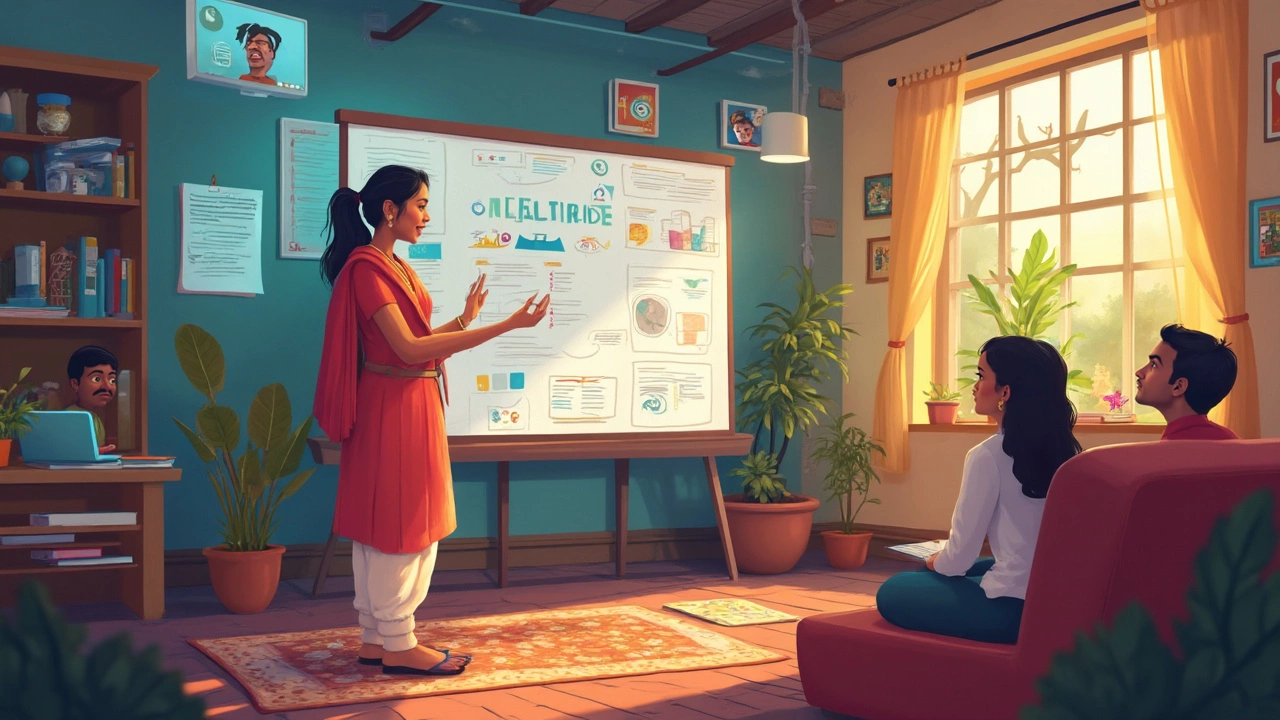
User Experience: Key to a Platform's Success
Ever noticed how some things just feel right when you use them? That's the magic of user experience, and it makes or breaks a learning platform. The ease with which you navigate a platform can dictate your entire online study journey. Imagine trying to find your favorite show on a streaming service but being unable to—how frustrating! The same goes for students picking a platform for their studies.
A top-notch e-learning platform should have a clean design, easy navigation, and responsiveness across devices. Most folks now study on the go, switching between laptops, tablets, and phones. If a platform isn't mobile-friendly, it's likely to lose users.
Another biggie? Content accessibility. High-quality platforms ensure courses are easy to access and understand. Think subtitles, transcripts, and even translations for international students. Plus, they offer interactive elements like quizzes and forums to keep learners engaged.
A major player like Coursera is known for its well-structured course layouts that guide learners smoothly from start to finish. Meanwhile, platforms like Khan Academy stand out for their interactive dashboards and instant feedback on exercises.
Let’s talk engagement tools. Features like progress trackers, reminders, and learner analytics make users feel more involved and motivated. Who doesn't love seeing a progress bar steadily increasing, right? It's like a gym app for your brain!
Finally, strong customer support can be a lifesaver. Most users aren't tech wizards and might run into tech troubles. A platform that provides reliable support creates a positive, stress-free user experience.
Popular Platforms Across Different Niches
When you're diving into the world of e-learning platforms, it’s clear that different strokes work for different folks. Like, if you're into tech, Codecademy and Udacity are probably already on your radar. They’re great for anyone itching to learn programming languages or get into data science. Both offer hands-on projects, which makes it easy to apply what you’re learning.
For folks eyeing a broader academic spectrum, Coursera and edX are big names. Pretty much every subject under the sun is available—think anything from arts to engineering. What's cool is you can often audit courses for free, though you'll need to pay for a certificate. Whether you're a student brushing up for exams or an adult soaking up something new, they offer a mix of self-paced and scheduled classes.
If you're more hands-on, platforms like Skillshare might catch your interest. It's less about structured courses and more about practical, project-based learning. Art, design, and entrepreneurship courses are big here, letting you dive right into creating and experimenting.
Udemy offers variety too, letting individual experts share their stuff. You'll find everything from leadership to digital marketing with ratings that help you gauge quality before you hit that buy button. Plus, they have frequent sales, so if you're on a budget, it's a real goldmine.
Looking into specific niches like health or fitness? Platforms like FutureLearn and OpenLearn cater to specialized interests with options in healthcare and psychology, plus they often tackle current issues like sustainability.
Navigating these platforms is getting easier too, thanks to user-driven reviews and community discussions. Whether you're looking to boost your career, scratch a curiosity itch, or just enjoy lifelong learning, there's an e-learning spot that fits. It's about finding your match and knowing what you want to achieve. And hey, with all these options, it's like having a buffet of knowledge at your fingertips!
Tips for Choosing the Right Platform
So, you're ready to dive into the world of online education, but where do you start? Picking the right platform can feel overwhelming. With so many options, you need a game plan.
First, figure out what you want to learn. Different platforms shine in different areas. For instance, if you're looking for technical skills, Codecademy is widely praised for its hands-on coding exercises. But if you’re craving a wider range of subjects, Coursera might be your best bet as it offers courses from top universities.
Next, think about the learning style that suits you. Do you prefer video lectures, quizzes, or written content? Udemy has a huge range of video courses, while Khan Academy is great if you like a mix of videos and practice exercises.
- Check out user reviews. Other learners' feedback can be super helpful in getting a sense of what works.
- Consider the cost. While some platforms have free courses, others offer subscriptions or one-time payments. Be clear on your budget from the get-go.
- Look for courses with certification. If you want to showcase your hard-earned skills, platforms offering certificates upon completion, like Coursera, can make your LinkedIn profile pop.
Finally, don't be afraid to try a few platforms before committing. Most platforms offer free trials or sample courses, so you can get a feel for the layout and content style before diving deep. Remember, the best one for you fits your learning goals, budget, and style.
